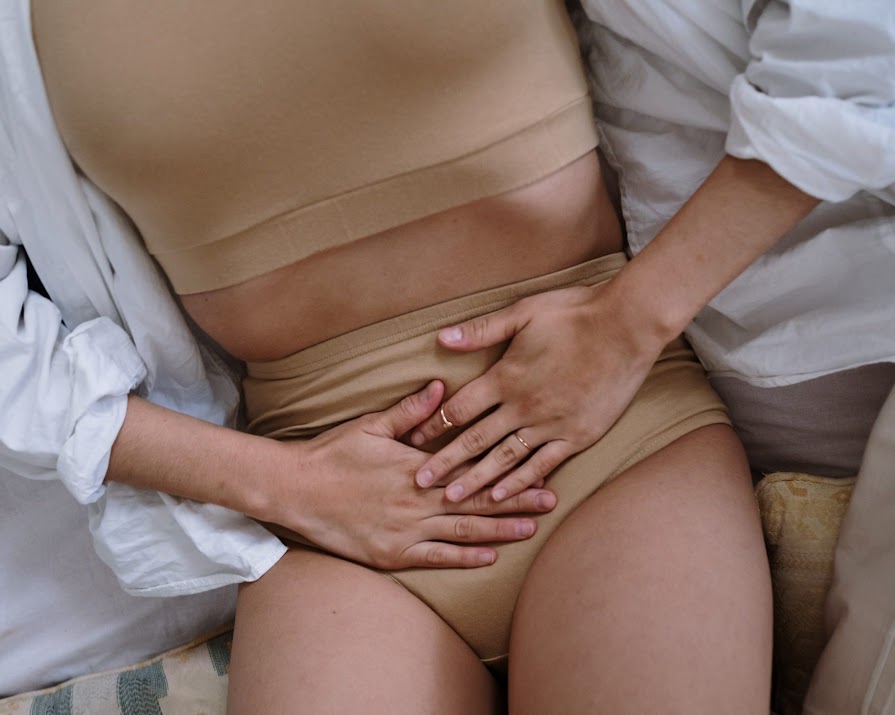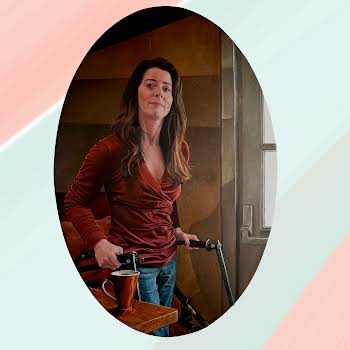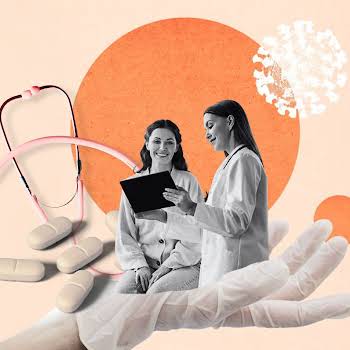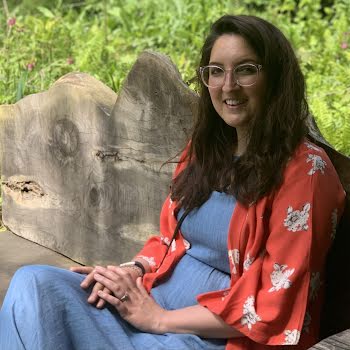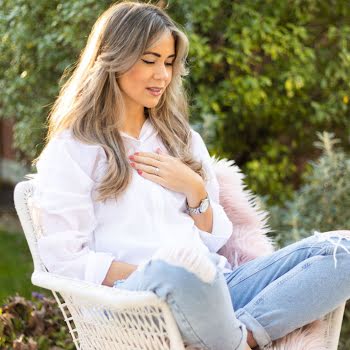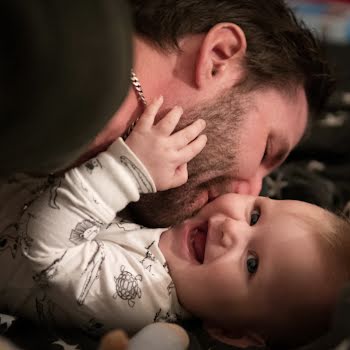Sponsored
How endometriosis affects fertility (and what you can do about it)
Sponsored By

By Meg Walker
02nd Mar 2022
02nd Mar 2022
Sponsored By

Endometriosis has only very recently joined the female health lexicon despite impacting nearly one million Irish women. We speak to a consultant who specialises in the condition about the symptoms and treatment of endometriosis and how it can affect fertility.
Following on from the results from our reader survey on fertility, we asked you what you want answers to. From male fertility issues to egg donation, we get the experts’ advice on all things fertility.
So far, we have covered ovulation, pregnancy loss and male fertility issues. Here, Dr Hugh O’Connor answers one reader’s question on endometriosis symptoms and treatment as well as its impact on fertility. Dr O’Connor is an advanced reproductive endosurgeon and works as a senior clinician in The Coombe Hospital’s recently opened Endometriosis Clinic.
Reader’s question
“I was recently diagnosed with endometriosis after years of experiencing pain in my abdomen, especially around the time of my periods. I am newly married and we desperately want to start a family. Should I seek medical assistance to help my chances of conceiving now, or do I wait? What are my options and can I really hope to one day have a baby of my own?”
Our expert
Dr Hugh D O’Connor is a Consultant Obstetrician & Gynaecologist at The Coombe Women & Infants University Hospital, which opened a dedicated clinic for the treatment of endometriosis, a gynaecological condition that affects one in every ten women in Ireland, in March 2021. The Endometriosis Clinic is facilitated by a consultant-led multidisciplinary team, including representatives from physiotherapy, dietetics and pain management.
Dr O’Connor is an advanced reproductive endosurgeon and senior clinician of the hospital’s new Endometriosis Clinic. Here, he answers our reader’s question about endometriosis and sheds some light on this very common condition.
Dr O’Connor’s advice
Endometriosis is a condition that affects approximately one in ten women, in which tissue similar to the lining of the womb grows outside of the womb, typically around the pelvis, causing inflammation. Typically, this causes severe period pain, bloating, fatigue and pain during sexual intercourse.
Endometriosis can affect a woman’s fertility in a number of ways. The inflammation in the pelvis can affect the fallopian tubes, causing them to become blocked and it can also make it less likely that successful fertilisation and implantation will occur. It is important to say, though, that most women with endometriosis will be able to become pregnant, but they are more likely to have difficulty than women without endometriosis.
My first suggestion would be to see your GP to discuss your symptoms and concerns regarding fertility. Your GP may wish to arrange an ultrasound or refer you to a specialist, but it is okay for you to start trying to conceive in the meantime.
If you have been diagnosed with endometriosis, your GP or consultant can also refer you to the new enhanced clinic for the treatment of endometriosis at The Coombe, which runs once a month. It is led by consultants with expertise in the management of endometriosis and supported by representatives from physiotherapy, dietetics and pain medicine.
Endometriosis can be treated in a number of ways and the approach must be tailored to suit an individual woman’s needs. Non-steroidal anti-inflammatory medications can be used to control the pain. Hormonal agents such as the combined oral contraceptive pill or the progesterone-only pill can also be used successfully to suppress the disease. A laparoscopy (keyhole surgery) can be performed to confirm the diagnosis and to surgically treat the disease.
The chances of conceiving are improved after surgery but how much so depends on how severe the disease is and if it has been fully treated. For example, if the superficial disease has been fully treated, up to 60% of women will conceive naturally in the following year. If a woman has endometriosis, her chances of conceiving will be increased by treating her endometriosis in advance and limiting the extent of it. A couple can further improve their chances of conceiving by living a healthy lifestyle, having a balanced diet with lots of fruit and vegetables. If you do conceive, it’s important to discuss in detail with your obstetrician your history of endometriosis and all treatments you have had.











